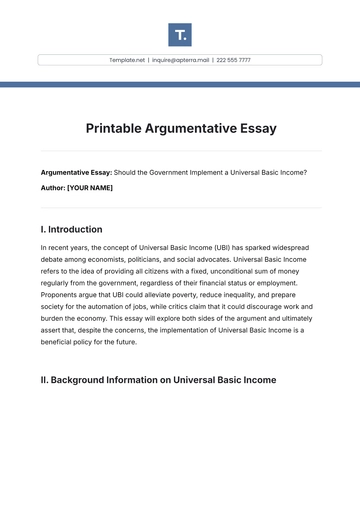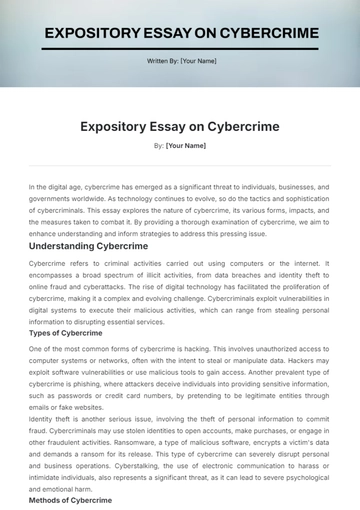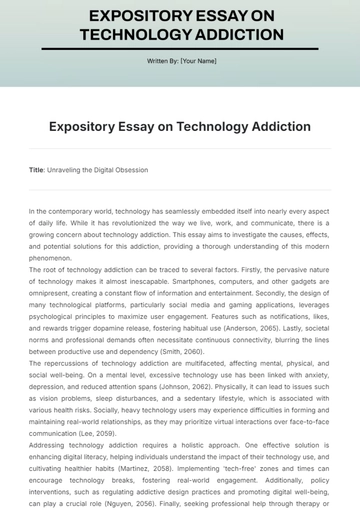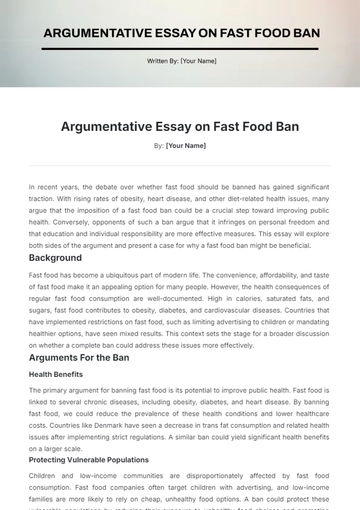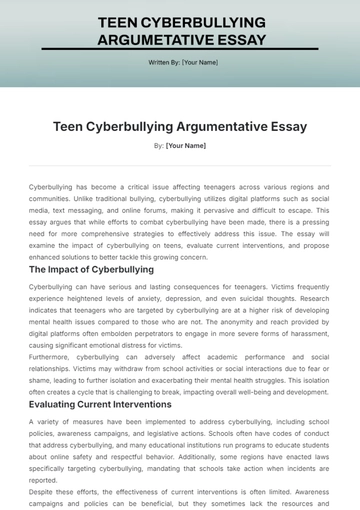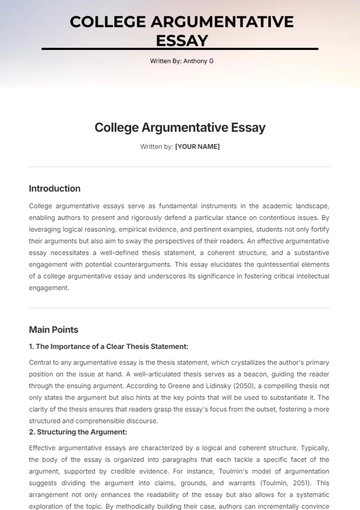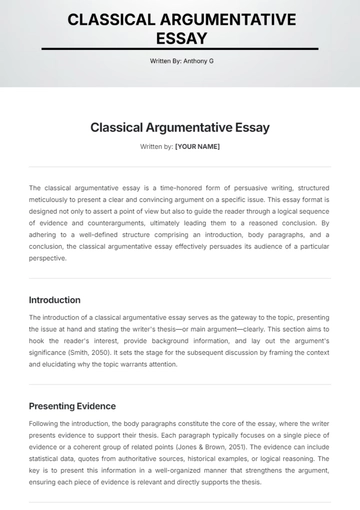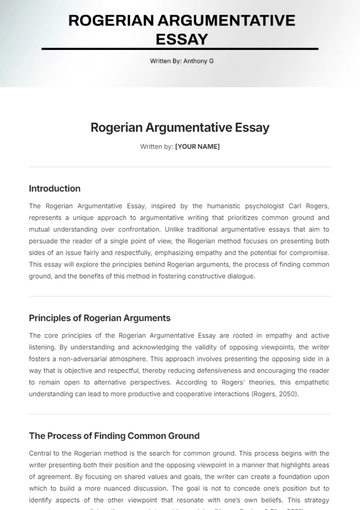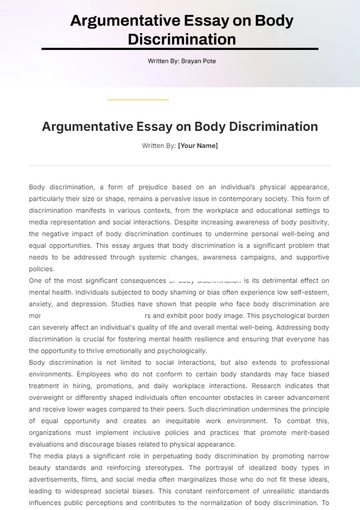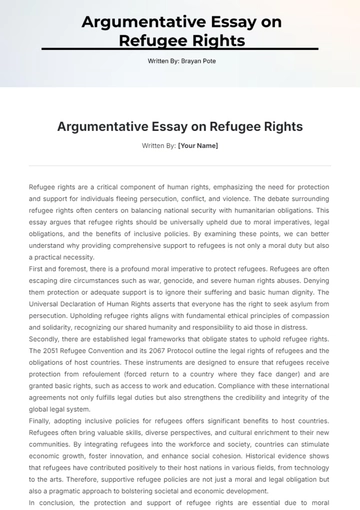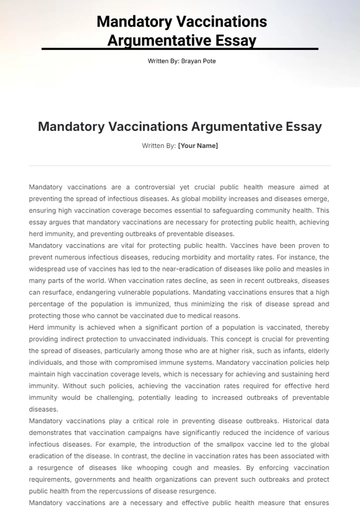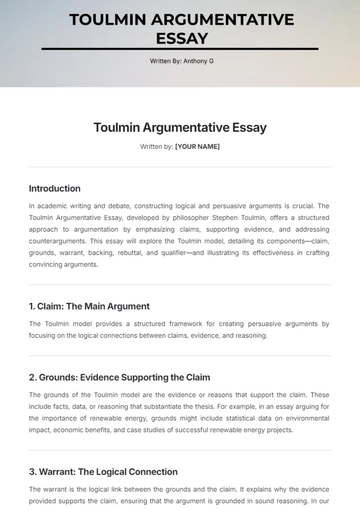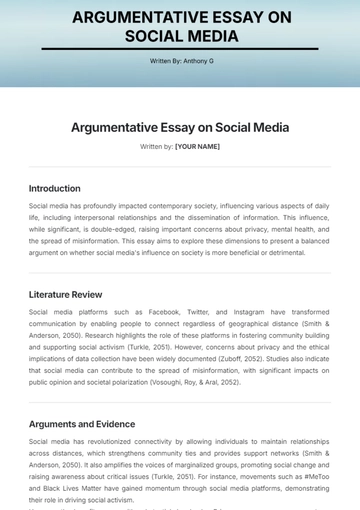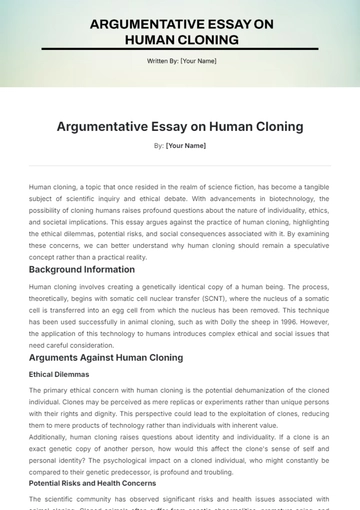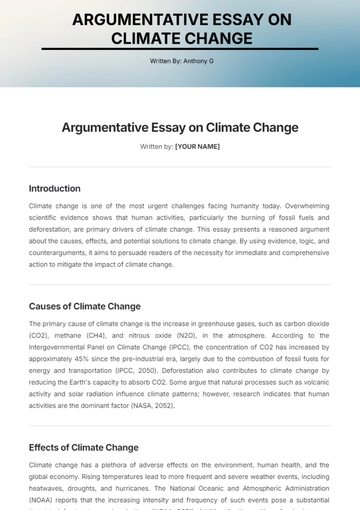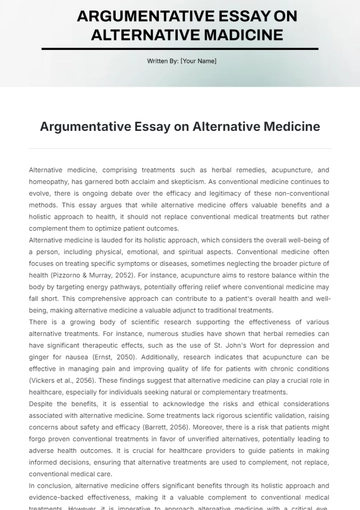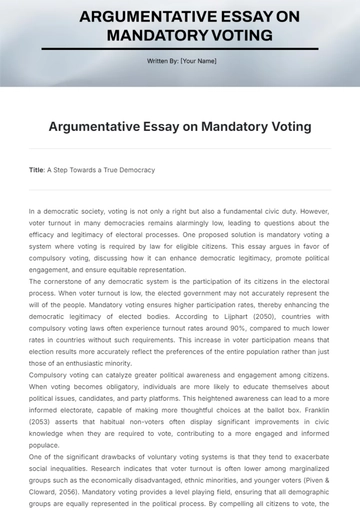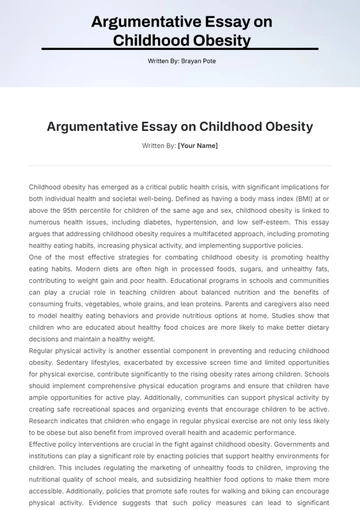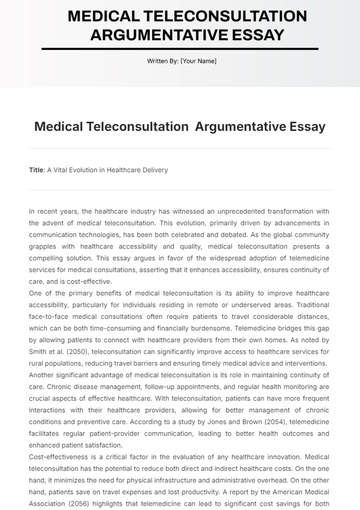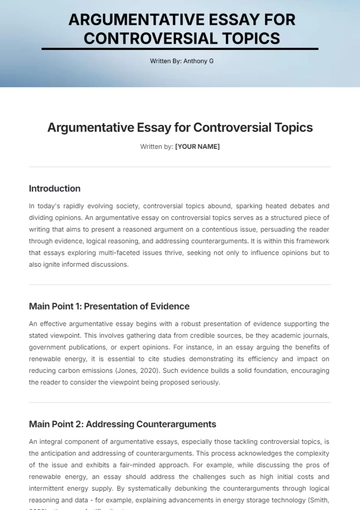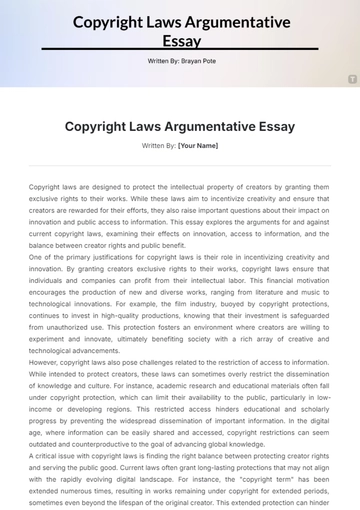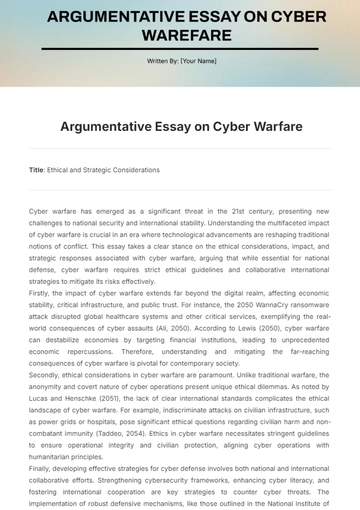Free Mandatory Vaccinations Argumentative Essay
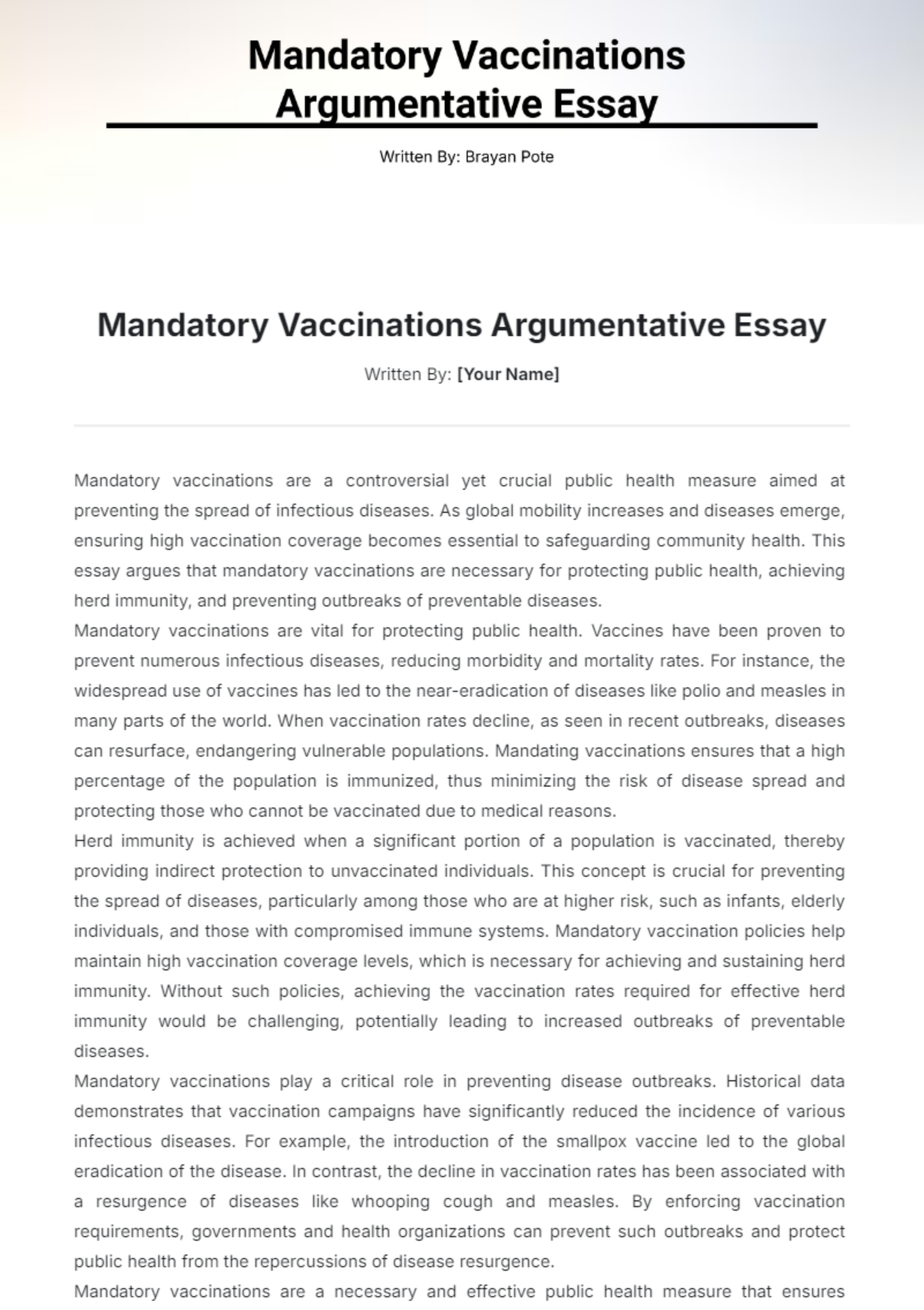
Written By: [Your Name]
Mandatory vaccinations are a controversial yet crucial public health measure aimed at preventing the spread of infectious diseases. As global mobility increases and diseases emerge, ensuring high vaccination coverage becomes essential to safeguarding community health. This essay argues that mandatory vaccinations are necessary for protecting public health, achieving herd immunity, and preventing outbreaks of preventable diseases.
Mandatory vaccinations are vital for protecting public health. Vaccines have been proven to prevent numerous infectious diseases, reducing morbidity and mortality rates. For instance, the widespread use of vaccines has led to the near-eradication of diseases like polio and measles in many parts of the world. When vaccination rates decline, as seen in recent outbreaks, diseases can resurface, endangering vulnerable populations. Mandating vaccinations ensures that a high percentage of the population is immunized, thus minimizing the risk of disease spread and protecting those who cannot be vaccinated due to medical reasons.
Herd immunity is achieved when a significant portion of a population is vaccinated, thereby providing indirect protection to unvaccinated individuals. This concept is crucial for preventing the spread of diseases, particularly among those who are at higher risk, such as infants, elderly individuals, and those with compromised immune systems. Mandatory vaccination policies help maintain high vaccination coverage levels, which is necessary for achieving and sustaining herd immunity. Without such policies, achieving the vaccination rates required for effective herd immunity would be challenging, potentially leading to increased outbreaks of preventable diseases.
Mandatory vaccinations play a critical role in preventing disease outbreaks. Historical data demonstrates that vaccination campaigns have significantly reduced the incidence of various infectious diseases. For example, the introduction of the smallpox vaccine led to the global eradication of the disease. In contrast, the decline in vaccination rates has been associated with a resurgence of diseases like whooping cough and measles. By enforcing vaccination requirements, governments and health organizations can prevent such outbreaks and protect public health from the repercussions of disease resurgence.
Mandatory vaccinations are a necessary and effective public health measure that ensures protection against infectious diseases, achieves herd immunity, and prevents outbreaks. By maintaining high vaccination coverage, we safeguard the health of the community, protect vulnerable populations, and mitigate the risks associated with preventable diseases. While debates on personal freedoms and medical autonomy will continue, the overwhelming benefits of mandatory vaccinations in protecting public health underscore their importance. Policymakers and health organizations need to uphold and enforce vaccination mandates to maintain a healthy and safe society.
- 100% Customizable, free editor
- Access 1 Million+ Templates, photo’s & graphics
- Download or share as a template
- Click and replace photos, graphics, text, backgrounds
- Resize, crop, AI write & more
- Access advanced editor
Craft compelling essays on mandatory vaccinations with the Argumentative Essay Template from Template.net. This fully editable and customizable template simplifies your writing process, allowing you to adapt content effortlessly. Editable in our Ai Editor Tool, it ensures precision and ease, helping you create a persuasive, well-structured argument with professional flair.

